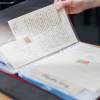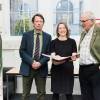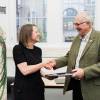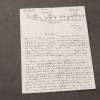Newly donated letters reveal fresh insights into Orwell’s life
29 November 2021
Fifty letters written by George Orwell to two women he sought to marry and who became lifelong friends have been donated by the author’s son, Richard Blair, to the Orwell Archive at UCL.
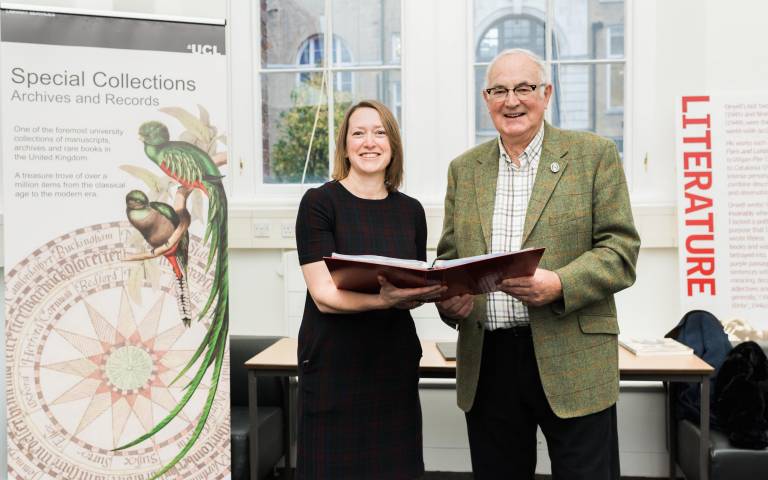
The letters reveal new details about Orwell’s life in the 1930s – including his overlapping romances, his love of ice skating, and his struggle to write and publish his first novels.
They also show that the two women, Brenda Salkeld and Eleanor Jaques, whom he met while staying with his parents in Southwold, Suffolk, had a profound importance in his life lasting long after his romances with them appeared to have ended. (They both turned down his marriage proposals – Eleanor married his friend, Dennis Collings, while Brenda stayed single.)
In a letter to Brenda in 1940, four years into his marriage with his first wife, Eileen O'Shaughnessy, and as a German invasion appeared imminent, he wrote: “It’s a pity … we never made love properly. We could have been so happy. If things are really collapsing I shall try and see you. Or perhaps you wouldn’t want to?” Orwell also wrote to Brenda from his hospital bed (at University College Hospital), sending his last letter four months before his death in 1950, just as he was about to marry his second wife, Sonia Brownell.
Richard Blair, Orwell’s adopted son who purchased the letters privately from the descendants of the two women at a substantial cost, said: “Just when we thought that there was nothing more to know about George Orwell, something startling turns up. I am so pleased to donate these precious letters to the Orwell Archive at UCL and to see them preserved together in a single place so they can be shared with all who wish to study George Orwell’s life and work.”
Professor Stella Bruzzi, Dean of UCL’s Faculty of Arts and Humanities, said: “These letters are highly significant, shedding new light on one of the 20th century’s most celebrated writers. We are hugely grateful to Richard for his generosity in donating this prized collection of unique personal artefacts to the Orwell Archive at UCL.”
The bulk of the letters have not been publicly available before. Eighteen of the 21 letters to Eleanor were first discovered more than a decade ago in a shed, stored in an old brown envelope upon which Eleanor had written that the contents should be burned after her death. The 29 Brenda letters surfaced in 2018.
The letters were presented by Richard Blair to UCL on Friday, ahead of the Orwell Memorial Lecture, of which Mr Blair is the key sponsor. The Orwell Lecture, organised annually by the Orwell Foundation and hosted by UCL, was delivered this year by the novelist Ian McEwan.
Orwell biographer D.J. Taylor, who helped to track down the letters, said: “They not only enable us to reconstruct far more of Orwell’s life in the early 1930s – a largely undocumented time in his career – than we have previously been able to, but they also show just how much these women meant to him. He could get neither of them out of his system, kept up with them throughout the 1940s and continued to write to them on intimate terms.
"The letters also show a different side to Orwell. He lived a compartmentalised life and these documents open up a new corner of it. I did not know that one of his great hobbies was ice skating, for instance. There are lovely little drawings in a few of the letters and in one of these doodles he shows himself trying and failing to ice skate backwards.
“In terms of improving our understanding of Orwell’s work, I have a strong suspicion that his letters to Eleanor reminiscing about their country walks at Southwold may have inspired similar passages describing Winston’s affair with Julia in Nineteen Eighty-Four.”
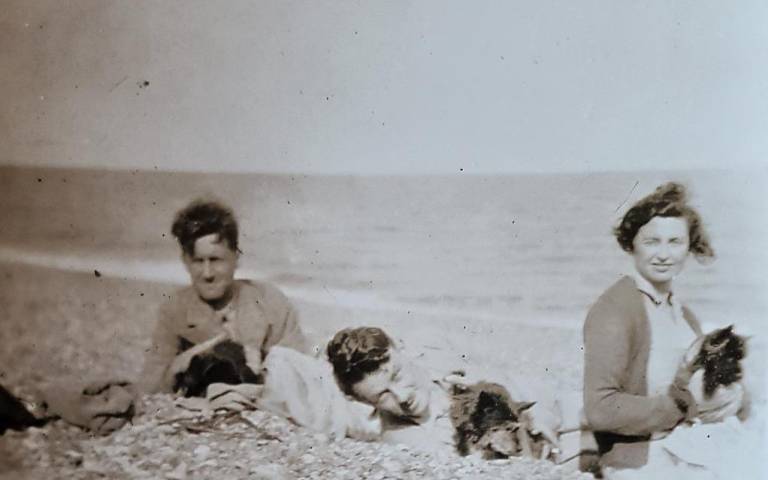
The collection, which has been formally inscribed to the prestigious UNESCO Memory of the World International Register, features the first hand-written notes of some Orwell’s most famous words and phrases, such as “Two Minutes Hate”, “Newspeak”, and “War is Peace. Ignorance is strength. Freedom is slavery”.
Sarah Aitchison, Head of UCL Special Collections, said: “The Orwell Archive has been based at UCL for more than 50 years. It is one of our most highly prized collections and an important resource for researchers. We are thrilled at the addition of these two wonderful caches of letters which change our understanding of the author, revealing a great deal about his activities and interests at the time he was writing his early books and trying to establish himself as a writer.”
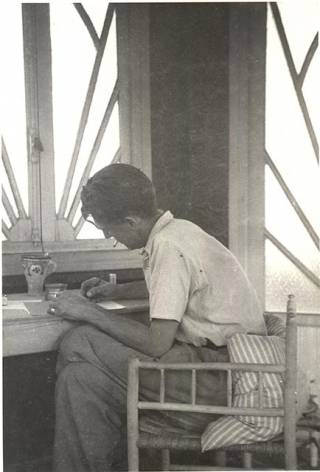
Ian McEwan’s Orwell Memorial Lecture will soon be available to watch on The Orwell Foundation’s YouTube channel. The lecture is one of a growing number of initiatives promoting public and scholarly engagement with Orwell’s work which the Foundation has launched since its arrival at UCL in 2016, including a new Political Fiction Prize, and dramatised live readings of Orwell’s books.
The Foundation, which organises the annual Orwell Prizes for political writing and Orwell Youth Prize, will launch a new Bloomsbury-based Orwell Festival of Political Writing, in partnership with the UCL Institute of Advanced Studies, in 2022.
Links
- The Orwell Archive at UCL
- UCL Special Collections
- UCL Library Services
- Orwell Foundation
- Orwell Memorial Lecture
- Professor Stella Bruzzi’s academic profile
- UCL Arts & Humanities
Image
- From top: Sarah Aitchison, Head of UCL Special Collections, and Richard Blair at an event held at UCL to celebrate the donation. Credit: UCL / James Tye.
- George Orwell with a writer friend, Samuel McKechnie, and Eleanor Jaques on a beach in Southwold in 1932. Courtesy of the estate of Dennis Collings.
- George Orwell writing in Morocco in 1938/9. Courtesy of UCL Special Collections and the Orwell Estate.
- Orwell letters and Orwell biographer D.J. Taylor with Sarah Aitchison and Richard Blair. Credit: UCL / James Tye.
Media contact
Mark Greaves
T: +44 (0)7990 675947
E: m.greaves [at] ucl.ac.uk
 Close
Close


